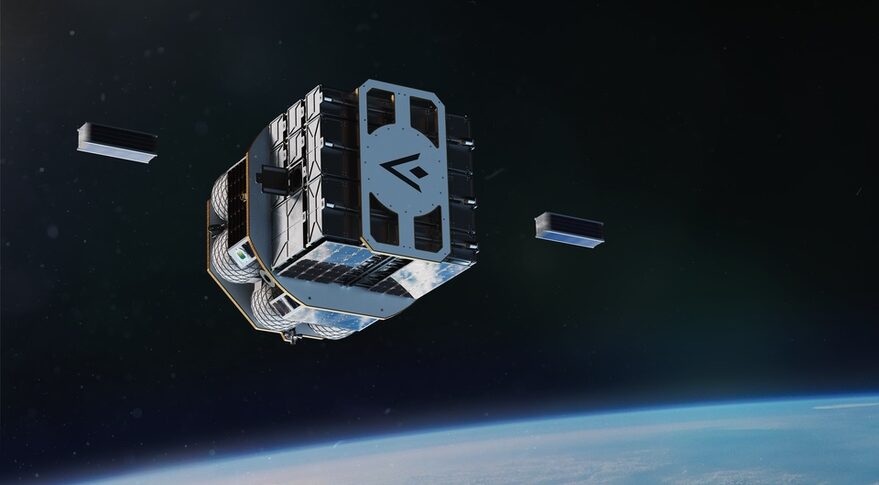WASHINGTON – The United States is at risk of being outpaced by China in space capabilities, in part due to the slow adoption of commercial innovations such as small satellites, warns a new report released May 5 by the Atlantic Council’s Scowcroft Center for Strategy and Security.
“If the United States is to maintain space superiority, it will need to make substantive cultural, doctrinal, and operational changes to its multidimensional relationship with the commercial space industry,” says the report titled Small Satellites: The Implications for National Security.
The so-called small-satellite revolution spawned by mass manufacturing and cheaper access to orbit has been a boon for the space economy but is not yet benefiting national security space programs, argues Nicholas Eftimiades, nonresident senior fellow at the Scowcroft Center, and author of the report.
He points to the U.S. government’s “lack of understanding of commercial markets, outdated institutional processes, and a defense bureaucracy unwilling or unable to adapt to the changing environment” as reasons why small satellites are still viewed as platforms for experiments rather than as mainstream capabilities for U.S. defense and intelligence.
Eftimiades cautions that other countries like China are embracing commercial innovation faster than the United States. This could put the U.S. at a disadvantage in areas like remote sensing, communications and on-orbit data processing — all areas that are advancing rapidly due to the growing capabilities and increasingly affordable prices of small satellites.
“Over the next decade or so, commercial space activities will increase the number of operational satellites by nearly a full order of magnitude, mainly through the development of small satellites,” he writes. “A new space ecosystem is coming into being, with profound implications for the world’s security and economic development.”
The speed at which commercial space companies are putting thousands of satellites into orbit presents “unique challenges for U.S. security in space, as well as for deployed armed forces. There will be increased congestion in certain orbits, competition for communications bandwidth, new types of space operations, increased transparency, and a changing threat paradigm,” says the report.
“Competing in this changing environment will require the United States to make substantial changes in long-established defense acquisition processes, research and investment strategies, data classification and distribution,” writes Eftimiades.
To increase the resilience of various US space systems, sys the report, DoD should use commercial systems, including proliferated satellite architectures and responsive space-launch capabilities, and buy data from allied and commercial providers.
Other points made in the report:
- The Department of Defense and the intelligence community are trying to take advantage of the small-satellite revolution. But the DoD does not generally take a “buy commercial first” approach to space services.
- There is an established culture that ignores legislated “commercial first” mandates, and that behavior has become increasingly detrimental to national security interests.
- Over the last decade, this culture has eroded U.S. space superiority, and will continue to do so as the world moves toward quickly developed and deployed, low-cost commercial space systems.
- DoD acquisition processes are designed to reduce risk and, as a result, are ill prepared for the high-speed commercial space environment.
- DoD is making efforts to speed up acquisition processes for small satellites and associated technologies. The results to date are mixed.
- A positive step is being taken by DoD’s Space Development Agency, which is building a distributed space architecture of small satellites.
The report lists a number of recommended actions by the U.S. government to better take advantage of commercial space innovation:
- Congress and the administration should conduct rigorous oversight to ensure DoD and intelligence organizations enforce policies to “buy commercial first.”
- The secretary of commerce should move the Office of Space Commerce out from under the National Oceanic and Atmospheric Administration. Buried in NOAA, the Office of Space Commerce is in a poor position to conduct the required interagency and international coordination.
- Congress should direct the DoD and the Office of the Director of National Intelligence to conduct a study to identify national security missions that can be accomplished through commercial space.
- To enhance security, the Department of State, DoD and the Department of Commerce should pursue space diplomatic efforts, with the goal of establishing global norms of behavior in space.
Thales Group, a multinational defense and aerospace contractor, provided financial support for the study.

